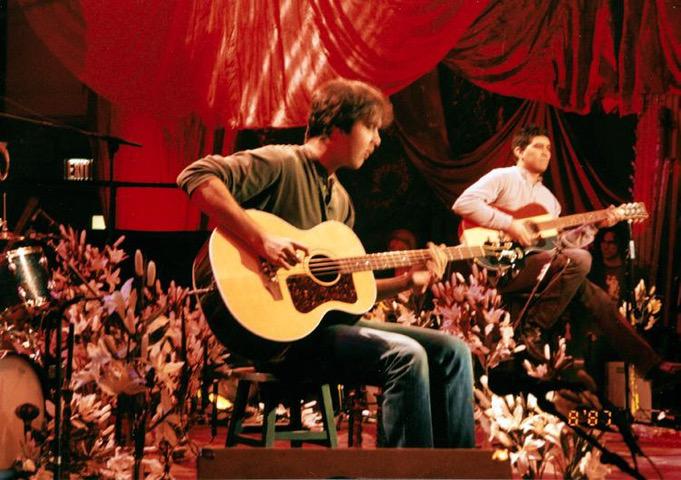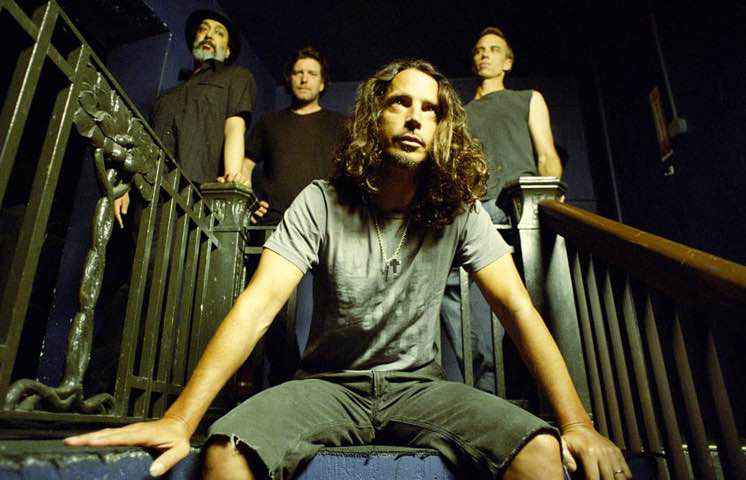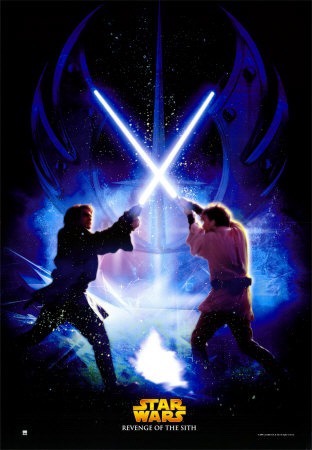“You mean like a funeral?” the producer of Nirvana’s MTV Unplugged session asked, in regard to the black candles and stargazer lillies Kurt Cobain had requested to decorate the set. “Exactly. Like a funeral,” said Kurt.
It’s difficult to tell whether Nirvana’s unplugged show would have acquired the legendary, mythic status it has, whether it would’ve resonated so poignantly, were it not for the fact that within five months of the show Kurt was no longer with us.
There’s so much of the prophetic in the show that it’s impossible not to feel that Kurt, consciously or subconsciously, already had the sense of where his life was going. From the funeral-like aesthetic dressings of the set to the lyrical resonance of The Man Who Sold the World, the show is – and always was – infused with a tinge of bittersweet resignation, even while at the same time being a creative triumph.
Nirvana Unplugged first aired December 16th, in 1993.
Nirvana were relatively late in getting around to their unplugged show, which MTV had been asking them to do for some time; Kurt had for a while been unenthusiastic about doing one at all, partly due to uncertainty as to whether Nirvana material could lend itself to that sort of set-up as easily as, say, REM’s did; but also, one suspects, because Kurt probably wasn’t that keen to play service to the MTV institution or to do something that almost all the other breakthrough alternative acts of the time had already done.
Whatever the reasons for the initial reluctance, it is something to be thankful for that Kurt and Nirvana chose to do the show in the end, which became so much a part of the Nirvana tapestry that it’s impossible to imagine it not having happened.
Yet, fully in keeping with Kurt and Nirvana, the show is a glorious exercise in imperfection and oddness.
I remember when I first saw the show; it was an edited version of the performance showing very late night on the BBC. I was sleepy-eyed and up passed my bedtime and all I really remember about that first viewing was how good ‘About a Girl’ sounded and how funny Krist Novoselic looked playing the accordion. Fast-forward nine months or so, Kurt has been gone several months and the MTV show is being put out as Unplugged in New York (album released September 1994), becoming Nirvana’s first posthumous release and essentially it’s final statement out into the world.
As final statements go, they don’t come any sweeter or more poignant.

I’m not sure any show has been opened so beautifully, so breathtakingly and yet so simply as that stripped down, plain version of About a Girl that opened the set. But it set the tone for what was to follow; a show that would demonstrate both Nirvana’s greatness as a band, Kurt’s depth as a songwriter and performer, and also possibly hinting at the direction Nirvana might’ve been going in after 1993’s In Utero album. There’s also a great sense of authenticity to Nirvana’s show; they performed the entire set in one take; and you can tell. There isn’t the ‘polished’ sense to the performance. There are weak-spots throughout, but somehow this adds to the sense of frailty and honesty to it.
And if there was one world I’d use to some up Nirvana Unplugged then ‘frailty’ would probably be it. It was an incredibly special musical entity stripped of all bombast and artifice and baring its soul; there’s a palpable vulnerability to it that makes it all the more special.
About a Girl really did open that show perfectly; exhibiting Kurt’s powerful vocals in a more direct and barer fashion than anything I can think of from before it. By stripping that song down from the version that had been familiar to Nirvana fans it also showed just how good, how sweet and how tuneful, that song really was in a way that hadn’t been evident from the 1989 Bleach version. This unplugged version has always been my favourite incarnation of the song and it really is breathtaking and immaculate, displaying Kurt’s songwriting in all its unpretentious simplicity.
It’s a remarkably catchy pop song in essence and yet it had never been a single or something heavily played on the radio prior to Unplugged.–
What’s most remarkable about Nirvana’s unplugged set is the song choices. Not all of it works that great; you could justifiably argue that Pearl Jam’s unplugged show (which came a year earlier than Nirvana’s) was a much stronger, tighter set, and more sonically powerful. But Pearl Jam’s, like REM’s, was a set of ‘hits’ or of the band’s most popular material – ‘Alive’, ‘Jeremy’, ‘Black’, ‘Even Flow’, ‘Porch’ – because Pearl Jam’s music and particularly the Ten album of the time lent itself much more naturally to an unplugged setting. Nirvana’s standard repertoire didn’t lend itself to an unplugged show in the same way and is therefore a little more hit or miss in translation. Alice in Chains seemed to have a similar problem when their turn came around.
On a Plain, for example, is vastly different unplugged to what we’re used to; interesting, but probably not as powerful.

While Something in the Way is a little too sparse to be interesting in a live, acoustic show, whereas as recorded by Butch Vig on Nevermind it has much more tone and atmosphere (partly achieved by Kurt laying on his back while he performed the take). Polly and Dumb make minimal impression compared to their recorded versions, while Kurt’s decision to do Pennyroyal Tea on his own results in a performance so bare and so fragile that it’s too uncomfortable to listen to.
But isn’t it just like Nirvana, and perfectly in keeping with everything they were about, that their show would be such a mixed affair, demonstrating their imperfections at the same time as it demonstrated their brilliance?
There’s something to be said for that, particularly given Kurt’s and Nirvana’s punk ethos; again using Pearl Jam as a comparison, PJ’s set was pretty much perfect, note for note, with Vedder’s voice incredibly powerful – it was an immaculate, passionate performance. Nirvana’s was much more understated and was characteristically imperfect, with a more chancy set-list and with Kurt’s vocals cracked and sensitive.
That’s part of the charm. We can taste Kurt’s uncertainty and uneasiness; yet we can also marvel at those three or four moments of glorious perfection that raise the entire thing far above the fare of the initial MTV platform.
The set-list was an odd one, with several covers including three Meat Puppets songs that members of that band join Nirvana for (a request that the show’s producers were unhappy with and tried to fight against). This quirkiness in song choices was something I’d imagine Kurt somewhat revelled in, choosing not to go the ‘hits’ route that other acts opted for in their sessions. Plateau and Lake of Fire are particularly compelling.
Of the other covers, two in particular stood out and both were utterly breathtaking performances; David Bowie’s The Man Who Sold the World and blues legend Leadbelly’s Where Did You Sleep Last Night. These two songs, along with the opening About a Girl, are the absolute highlights of the show.

Kurt makes The Man Who Sold the World entirely his song; he seems to embody that song and all its lyrical, thematic and sensory layers when he performs it. The dual guitar tones are rich and lucid, the vocals are disarmingly beautiful, and the rendition as a whole is so poignant that I find it virtually unbearable to listen to with any regularity. When I bought the album in 1994 and Kurt had been dead five months by then, it was The Man Who Sold the World that pierced the gut most and was the most moving.
That line in particular, “I must’ve died alone, a long, long time ago” felt extraordinarily prophetic and seemed to echo far beyond the moment. It’s on The Man Who Sold the World that the choice electro-acoustic approach is most strongly felt and most validated.
Where Did You Sleep Last Night, on the other hand, was a song Nirvana and Kurt had had a go at a few times over the years (there’s a really good version Kurt did with Mark Lanegan in particular), but never anything like as immaculately as on Unplugged. The version performed in New York was just about the most atmospheric, moody and evocative thing MTV is likely to have ever broadcast in its lifetime, and the hairs on your skin stand on edge when you listen to this (even more so if you watch the footage).
There’s a specific moment, during the final line of the lyrics, where a shut-eyed Kurt, deep into a long, cracked-voice howl that seems to penetrate your gut, he seems so far away, so transported to some other realm, that by the time he opens his eyes again he seems momentarily disoriented, as if he’d forgotten where he was and what he was doing; or as though he’d been drawn to so far away a realm that he’d found it hard to come back.
It’s a moment I always remember, because it’s visually so arresting. But what an unforgettable piece of music to end that show with. With Lori Goldston’s moody accompaniment as well, it’s a much more epic version of the song than can be heard elsewhere.
After the band finished, Kurt allegedly argued with the show’s producers, who wanted an encore. He refused because he felt he could not top the performance of that song. He was right. That was the perfect end.
For all the possible weak spots in the show, by opening so perfectly with About a Girl and finishing so powerfully with Where Did You Sleep Last Night, the sheer breathtaking framing of the overall show overrides everything else. That’s the odd juxtaposition of this show; you have somewhat flat, unremarkable renditions sitting alongside moments of extraordinary, almost otherworldly transcendence.
That’s almost a representation of Kurt’s apparent nature itself; the bored apathy in some instances and then the bursts of the sincerest emotion in others.
On Unplugged, in its almost deafening quietness and intimacy, we as fans get as close to Kurt Cobain as was ever possible and in a way that doesn’t work with big stadiums or writhing mosh-pits.
This Kurt – the one who can’t hide behind a wall of immense sound or smash up his instruments or scream out his louder-than-life epic choruses – is awkward and discernibly uncomfortable with the experience. It has always seemed like he remains a little uncomfortable throughout most of the show, like he’s always slightly hesitating, always holding something back; and that it’s only once Where Did You Sleep Last Night arrives that he finally let’s go completely and goes into a very special place, finally going into those last strains of the song with all his gut.
Ironically that’s the end of it – the show ends just as Kurt reaches his strongest point, his true level; isn’t that just fucking typical of him?
Still, it’s one of those moments – like something you read about Hendrix or Jim Morrison – that echoes and resonates far beyond itself, like something transcending the musical into the magical. The hairs on my skin still stand on edge when I think about it. REM producer Scott Litt, who mixed the final recording for the album release, also alludes to how unsettling it was for him to have to listen to that final bow-out when he, Krist and Dave were working on the polish.
The decision chiefly made by Krist Novoselic and Dave Grohl to go with Unplugged in New York as the posthumous Nirvana release proved to be so fitting, so poignant, a choice that it’s impossible now to imagine anything else being the case. Anything like a ‘greatest hits’ CD would’ve been terribly misjudged; what they chose instead was something that demonstrated, warts and all, what had always made Nirvana so special.
Unplugged in New York isn’t Nirvana at their best. It isn’t the greatest Nirvana show. It might not even be the best MTV Unplugged show; but that’s all subjective.
What it is is one of the most honest, naked and poignant musical performances that has ever been recorded for posterity. And in all its quirkiness, unorthodoxy and hit-or-miss nature, it is also a perfect encapsulation of what endeared – and still endears – so many of us to Kurt Cobain and Nirvana even twenty years after the fact.





Such a great recording…. Gonna have to go dig it out and listen to it. Been a while… I have to admit, I’m seriously digging your blog here, as it combines two of my most beloved topics…. 🙂
I never got much into Foo Fighters though, especially after their first record. (Always sort of thought Grohl was a major corporate-radio sellout, to be honest…) I had high hopes for that band, especially since I had been a hardcore fan of SDRE, but oh well…
Haven’t actually heard manic street preachers at all before though, gonna have to check em out I guess…
Thanks man. Yeah, Foo Fighters are like marmite, I guess. There first album actually still stands as their best, but now they’re too big to be edgy. Definitely check out the Manics if you get the chance, they’re an all-time great band. What are the ‘two beloved’ topics…?
(music, and all things “conspirtorious”…) 😉
I see you’re from the UK… R u a Radiohead fan? (at least older stuff?) I’m perusing all your older music posts right now, I see you know your 90’s bands… I’m such a Pixies fan. Been “rediscovering” stuff like the Breeders lately too. (I grew up in Seattle in the 90’s, so yeah, definitely my cup of tea….)
You grew up in Seattle? Seattle’s where my ears lived for several years when I was growing up! Still my favorite era of music. I still listen to all that stuff all the time, even The Melvins or Tad. But yeah, I like Radiohead – who doesn’t? And the Pixies and Breeders, sure. What kind of stuff are you listening to lately?
Well, probably mainly stuff you’re already pretty familiar with I’m guessing…. I’d say my “vein of musical influences” starts somewhere back with that seminal British band Joy Division, and goes from there. I was glancing at a piece you wrote, saying something about how modern “rock” is so empty and manufactured, and I couldn’t agree more. It’s pretty bizarre to me how the musical climate of the past decade or so has essentially had this affect on me so that basically everything I hear from around 20 years somehow sounds like, amazing, by comparison, ya know? Even the stuff I more or less hated at the time… (like, “How does this Green Day song actually sound so good?”)
I dunno, I guess musical palates are much like food palates in a way, very impressionable depending on what other flavors/sounds you are being exposed to, comparing with… I do like a few newer acts though, such as, hmmm, have you listened much to We Were Promised Jetpacks? (from Scotland I believe) They’ve got a decent sound. but yeah, speaking of Scotland, I’ve liked bands like Mogwai for over a decade now, and the many minions of copycat bands they prompted in that whole “post-rock” area. I dig that stuff. Definitely like experimental bands, so long as they don’t “experiment” themselves completely away from still playing rock, (like, winding up with just a keyboard and a tambourine, no…) I used to see this band called Hovercraft play local shows in Seattle, they were awesome…. quite the experience. Ok, I’m rambling on and on here.
Was Hovercraft the band Eddie Vedder’s wife was in or something? I’ve never heard them, but I should look for some of their music.
Yep. He actually sat in on drums occasionally. In fact, I think Hovercraft joined Foo Fighters on tour with Mike Watt in 95….
The coolest part of the Hovercraft live shows was that the whole stage/band was used as like a moving canvas for a film compilation that was projected during the performance, which was just this mish mash of old black and white footage of old, funky stuff, like, ants crawling over other insects, and scientists from the 1950’s etc… The guitarist basically just makes all these crazy effects using loops and delay pedals and stuff, while the bass and drums played some beat. It was weird, but cool, and very loud.
Sounds great. I saw Pearl Jam last year and it wasn’t as good as the old days. I love him to bits, but I think Eddie’s voice is going. Or gone. I’ll definitely check out Hovercraft though.
Yeah, it’s definitely a big departure from PJ! Doesn’t surprise me about Vedder’s voice though. 2+ decades of smoking, (plus whatever else) tends to do that… 🙂
Pretty spot-on article, will share it to the Nirvana Fans Club site. It would be even nicer if you could spell. Get a proofreader; you need it. The other critique of it is that you only see the “funeral” aspect of the Unplugged. When Kurt ordered lots of his favorite stargazer lilies and black candles on the set, I believe he had in mind what the stargazer lilies represented to him: the ultimate in woman femininity. For him, stargazer lilies were symbolic of female labia and orgasms, leaving the black candles as the contrasting yin/yang male phallus symbol. He was having a private joke. When the stage designer inquires “Like a funeral?” Kurt, in his inimitable sarcasm, simply responds back what the designer has put forth as the obvious rather than the covert meaning Kurt personally imparted to it. Typical Kurt – why would he announce his private intentions to an obtuse outsider? He was doing this performance amidst a symbolic orgy.
Thanks for your very interesting thoughts on the subject. As for the spelling, I’m not sure what you’re referring to, unless it’s my English (as opposed to American) spelling of certain words, on account of my being based in England.
I always loved Kurt’s cover of “The Man Who Sold the World” and now I have always thought that his performance on unplugged was a deeper insight to him than anything else.
I agree. I always feel he must’ve chosen that song to cover for a personal reason. Thanks for commenting; it’s always nice to find fellow writers who appreciate some of the same things I do.